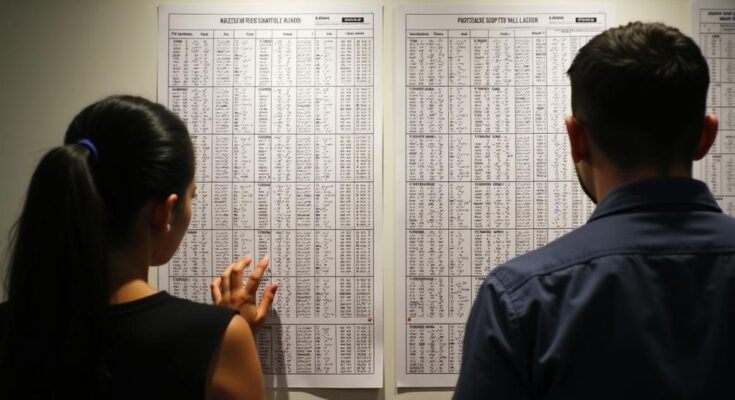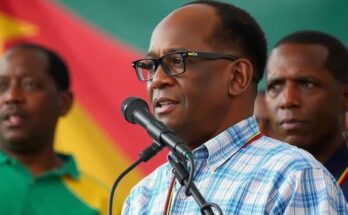An independent panel from the Carter Center has legitimized opposition tally sheets from Venezuela’s presidential election as proof of President Nicolás Maduro’s likely defeat. During a session organized by the OAS, it was emphasized that the electronic voting system functioned correctly, contradicting the government’s assertion of victory without detailed data presentation. The session sought to address transparency in the electoral process, amid claims of fraudulent records by the government and calls for detailed results from multiple countries.
In a significant development regarding the controversial presidential election in Venezuela, an independent panel of election observers, affiliated with the U.S.-based Carter Center, has validated the tally sheets presented by the opposition as evidence of President Nicolás Maduro’s electoral defeat. This assertion was made during a session organized by the Organization of American States (OAS), where representatives from the Carter Center emphasized the integrity of the electronic voting system and asserted that both the ruling party and other stakeholders are aware of the true electoral outcome. The ongoing dispute revolves around numerous tally sheets, referred to as actas, which serve as crucial documentation of election results in Venezuela. Each of the 30,000 electronic voting machines utilized during the election generated multiple copies of these receipts. While the electoral authorities declared Maduro the winner shortly after the polls closed, they refrained from releasing the detailed breakdown of results by voting machine, citing a hacking incident on their website as the reason. However, the opposition coalition managed to acquire tally sheets from over 80% of the voting machines and subsequently published this data online, prompting the government to dismiss these records as fraudulent and instigate an investigation against opposition figures, including their candidate Edmundo González. During the session, Jennie Lincoln, who directed the Carter Center’s observation mission, clarified that the electronic voting system includes a paper trail that corroborates the machine reports. This information was rigorously compiled by numerous poll watchers affiliated with both the opposition and the ruling party, the PSUV. It is important to note that while Lincoln presented the tally sheets, she refrained from declaring Gonzalez the winner, underlining that election pronouncements are the prerogative of the electoral authorities. The OAS, along with several national governments, has been pressing Venezuelan electoral officials to release comprehensive voting data. The meeting was initiated at the request of multiple countries, including Argentina, Costa Rica, Panama, the United States, Guatemala, Guyana, Peru, the Dominican Republic, and Ecuador.
The backdrop of this article centers on the tumultuous political climate in Venezuela following the presidential election held in July 2023. This election, which was marred by allegations of fraud and irregularities, resulted in President Nicolás Maduro claiming victory amidst widespread skepticism. The opposition has challenged the results, asserting that evidence, particularly the tally sheets from the voting machines, indicates a different outcome. The Carter Center’s involvement as an independent observer lends credibility to the opposition’s claims as it underscores the importance of transparency and accountability in electoral processes. The role of international organizations like the OAS highlights the global interest in the integrity of democratic processes within member states.
In conclusion, the official validation of the opposition’s tally sheets by the Carter Center marks a pivotal moment in Venezuela’s ongoing electoral dispute. It underscores the need for transparency in the electoral process and the responsibility of electoral authorities to provide detailed results. The insistence of the OAS and other nations on comprehensive data release reflects broader concerns regarding the integrity of democracy in Venezuela and the potential repercussions of the electoral outcome both domestically and internationally.
Original Source: apnews.com




